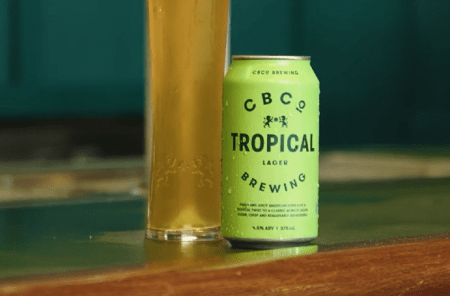
Colonial Brewing has changed its name to CBCo Brewing following internal reviews and the 2020 fallout when Melbourne bottle shop Blackhearts & Sparrows dropped their products because of the perception the brewing company’s name could be associated with Australia’s broader colonial past.
At the time the product boycott story hit headlines, everyone from shock jocks to politicians waded into the debate on whether Colonial should change their name. We even had our two cents worth at the time.
But having conducted reviews before and after that time, even though the word “Colonial” refers to their start-up history of breaking the mould by creating a brewing company in the wine stronghold of Margaret River, CBCo have finally deemed there is a bigger picture at play with how their foundation name could be perceived.
In a statement, CBCo said the new name, “a long-time internal moniker, aims to remove the divisive reference ‘Colonial’ while retaining a nod to its 18-year brand heritage in a manner more appropriate for today”.
Managing director Lawrence Dowd said “the name had become problematic and that a review of it had taken place as part of a program of upgrades and investment to support the brand’s growth”.
“The name Colonial Brewing Co no longer aligns with the respect we have for, and the value we place on the rich cultural traditions and talents of Indigenous people,” he said in the statement.
Some transition to the new company name has already begun while CBCo said it will take another six to 12 months for the public to see all aspects of the old name removed from the public space.

The full statement from CBCo Brewing reads:
One of Australia’s largest independently owned craft brewers, Colonial Brewing Co, has announced a name change to better reflect modern tastes and drive its continued growth in the marketplace.
Founded in Margaret River in 2004 on Noongar Booja Land, the craft brewer will now be known simply as CBCo Brewing, with the name to start appearing on all new cans immediately.
The new name, a long-time internal moniker, aims to remove the divisive reference ‘Colonial’ while retaining a nod to its 18-year brand heritage in a manner more appropriate for today.
CBCo Brewing Managing Director Lawrence Dowd said the former name had referred to the original brewer colonising the iconic Margaret River wine region, and was inherited by CBCo’s owner Morris Group when it purchased the brewery in 2008.
He acknowledged that over time the name had become problematic and that a review of it had taken place as part of a program of upgrades and investment to support the brand’s growth. This included extensive market testing with fans and key stakeholders, with CBCo Brewing selected as the most appropriate option.
“Since 2004 we’ve built a culture of taking pride in our craft and getting the little details right to create the best beer we can. In that time we’ve grown from our roots as one of the first microbreweries in Margaret River to a craft beer challenger to now a national brand that celebrates its independent and Aussie roots,” he said.
“As we have evolved so has the world – for the better. We recognise that the name Colonial Brewing Co no longer aligns with the respect we have for, and the value we place on the rich cultural traditions and talents of Indigenous people. Nor does it connect or reflect on who we are as a business and those who work here. To continue to take pride in our craft, our name is an important detail to get right.
“After extensive consultation with our customers and stakeholders we will now be known as CBCo Brewing. The deliberate choice to retain the letters CB pays tribute to our heritage and acknowledges the efforts of all of those people over the past 18 years who have made us who we are, but in a more appropriate and inclusive manner for today.
“We are proud to make great beer and, as CBCo Brewing, look forward to continuing in this tradition.”
While the process started last month to remove the old name, Dowd said the transition would take six to 12 months for all mentions of Colonial to be changed as retailers sell through remaining stock.
Dowd said the company had considered the name change for some time, consulting staff, partners and fans – as well as engaging a range of leading Indigenous representatives.
“We are pleased with the way the new name has already been received. And in the spirit of acknowledgement and respect we continue to work and find ways to support the promotion of First Nations history, heritage and culture,” Dowd said.
“This is an important moment in our story. We brew for today’s tastes and we now have a name that better reflects who we are today.”
The name change signals an evolution for the brewer, as it seeks to build on its position as the market-leader in the Sour beer category and increase its production across all of its beer varieties. It has just invested more than $12 million in upgrades to its Port Melbourne brewery, located on the lands of the Bunurong people, taking its brewing capacity to over eight million litres.
